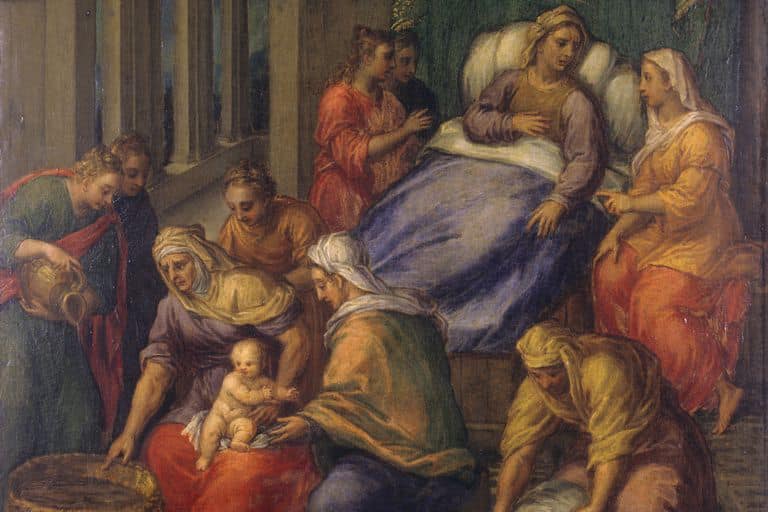 Gospel of 8 September 2020
Gospel of 8 September 2020
Feast of the Nativity of the Blessed Virgin Mary
Matthew 1:18-23
How Jesus Christ came to be born
This is how Jesus Christ came to be born. His mother Mary was betrothed to Joseph; but before they came to live together she was found to be with child through the Holy Spirit. Her husband Joseph; being a man of honour and wanting to spare her publicity, decided to divorce her informally. He had made up his mind to do this when the angel of the Lord appeared to him in a dream and said, ‘Joseph son of David, do not be afraid to take Mary home as your wife, because she has conceived what is in her by the Holy Spirit. She will give birth to a son and you must name him Jesus, because he is the one who is to save his people from their sins.’ Now all this took place to fulfil the words spoken by the Lord through the prophet:
The virgin will conceive and give birth to a son and they will call him Emmanuel,
a name which means ‘God-is-with-us.’
Reflexion
What unites human beings? The answer is simple - we all have birthdays. Our Lord Jesus chose to be born on Christmas Day in order to be fully human whilst remaining fully divine. He was born of the Blessed Virgin Mary, whom the Church honours and yet recognises that it was through her that the Saviour of the World would receive His humanity, which means she had to be human too, not some angelic nor superhuman being.
If Mary is human, it is only logical that she too must have been born and that she too has a birthday. Of course, scriptures doesn’t say anything about Mary’s birth. But to reject this just because it is not mentioned in the bible is to reject her humanity, and to reject her humanity would either mean, rendering her a goddess or her son as not fully human; both being unacceptable propositions.
The Catholic Church celebrates today as the birth date of the Blessed Virgin Mary on its traditional date of September 8, exactly nine months after December 8, the Feast of her Immaculate Conception as the child of Saints Joachim and Anne. How did the Church arrive at these dates since there are no records of these events? Well, according to Tradition, September 8 was the date the Church of St Anne in Jerusalem, marking the birthplace of the Blessed Virgin Mary, was consecrated.
Saint Augustine, the great 4th century Doctor of the Church, described the birth of the Blessed Virgin Mary as an event of cosmic and historic significance, and an appropriate prelude to the birth of Jesus Christ. “She is the flower of the field from whom bloomed the precious lily of the valley,” he said, “through her birth, the nature inherited from our first parents is changed."
Yes, through the birth of the Ever-Virgin, the only-begotten Son and Second Person of the Most Holy Trinity could become man. And through the Incarnate Word, mankind, once an outcast, has been made worthy of sonship to the Heavenly Father, received the promise of the glorious resurrection and eternal life in the heavens together with the angels.
In the Blessed Virgin Mary all human nature is exalted. So, let us celebrate the feast of the Nativity of the Most Pure Virgin Mary, who through her birth has announced joy to the whole world. Today, the Church celebrates her birthday. The stage is set, the story is in motion. Soon the main protagonist will appear. Soon, we will celebrate the birth of her son, the One whom we call Emmanuel, God-is-with-us. As we welcome the birth of the mother, let us be ready to welcome the birth of her Son.
